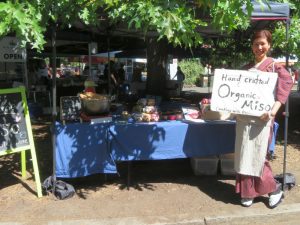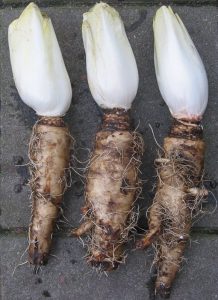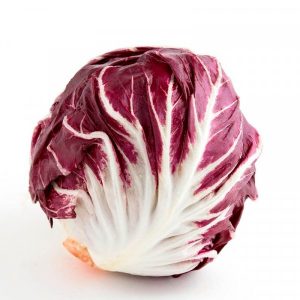Judy visits the garden of Pam Jenkins, from Diamond Creek
 Many of you will have come across Pam through her indefatigable efforts to promote local food growing in Diamond Creek, including maintaining the planter boxes in Chute Street. Judy Vizzari has now interviewed Pam as a home grower. As Judy says, “The garden is an enormous five acres and surrounds the house on three sides – north, south and east – spreading down into the valley below … The terrain is, like elsewhere in Nillumbik, rocky, dry and difficult to work – it needs a lot of help to build up a depth of top soil. So she and her family have augmented the beds with compost, manures and mulches, sourced organic materials, added tree and bush clippings and employed complementary plantings to support and nurture the space. Pam’s mantra has been to ‘use everything at hand’ that is, to recycle and to creatively employ all means to make the most of her environment.” Read the full interview.
Many of you will have come across Pam through her indefatigable efforts to promote local food growing in Diamond Creek, including maintaining the planter boxes in Chute Street. Judy Vizzari has now interviewed Pam as a home grower. As Judy says, “The garden is an enormous five acres and surrounds the house on three sides – north, south and east – spreading down into the valley below … The terrain is, like elsewhere in Nillumbik, rocky, dry and difficult to work – it needs a lot of help to build up a depth of top soil. So she and her family have augmented the beds with compost, manures and mulches, sourced organic materials, added tree and bush clippings and employed complementary plantings to support and nurture the space. Pam’s mantra has been to ‘use everything at hand’ that is, to recycle and to creatively employ all means to make the most of her environment.” Read the full interview.
Robin’s veggie growing tip of the month: prepare to vernalise your garlic!
[Editor’s note: Robin and I debated garlic planting in some of the newsletters a couple of years ago. If you plant garlic too early (i.e. when it is too warm), the resulting bulbs may not divide into separate cloves. If you plant too late, the bulbs may remain small (because, driven by length of day, the garlic starts trying to form bulbs when it is too young). One  potential way around this potential dilemma is to keep the garlic in the fridge for some time before planting. I experimented with different timings and different refrigerations and one of the conclusions was that refrigeration did, indeed, allow for later successful plantings. Read the results of the experiment.]
potential way around this potential dilemma is to keep the garlic in the fridge for some time before planting. I experimented with different timings and different refrigerations and one of the conclusions was that refrigeration did, indeed, allow for later successful plantings. Read the results of the experiment.]
In the ‘old days’, before climate change, garlic would often be planted in March but these days the ground is too warm then (the perfect time to plant garlic is when soil temperature is 10°C at a depth of 8cm at 9am in the morning). Arguably, this is also becoming the case in April. So, commercial growers are increasingly giving their garlic a ‘false winter’ by refrigerating it for 40 days and then planting it out in May. This process is called vernalisation and helps late-planted garlic to develop large bulbs. If you want to copy these growers, you should be purchasing your garlic soon and refrigerating (not freezing) it in mid- to late-March. Buy from reputable sources (probably online or at farmers’ markets as nurseries won’t yet be stocking garlic heads) and do not use imported garlic as this may well have been sprayed with methyl bromide and a shoot inhibitor.
When preparing your garlic, select healthy heads, do not separate the cloves (as this could result in infection when removed from the basal plate), place in an airtight container in the fridge and remove 40 days later in May. Plant the large outer cloves at a depth of 2cm (i.e. the tip has 2 cm of soil above it) at 15cm intervals in rows 15cm apart, and apply a thick layer of loose mulch.
Garlic requires regular watering and, with drier winters, this needs to be done by hand, dripline or in wicking beds. In November or early December the plants will be ready to pull. Water up until 2 weeks before harvest. Ceasing watering then will allow the garlic to dry out, but also check the likely rainfall when planning when to harvest and adjust accordingly.
There are many varieties of garlic. They are broadly divided into soft-necks and hard-necks, with the soft-necks having a stronger flavour. Different varieties can have very different shelf lives.
For more information, read Helen Simpson’s guide to growing garlic on our website.
 Abbotsford Convent Farmer’s Market
Abbotsford Convent Farmer’s Market
Richard Lee has written in to point out that, in last week’s newsletter, I omitted KABUU from the list of the market’s stallholders who are local to North East Melbourne.
As an atonement, I went to the market last Saturday to check out all 60(!) of their stallholders. While so doing, I realised that the Cooking with Koji stall – see picture right – is the same person (Yoko Nakazawa) as the eponymous Japanese cooking school in Preston. Yoko’s upcoming cooking classes in March include nuka zuke – rice bran pickling, shio koji making and cooking and miso paste making.
Local food news
The Yarra Valley Beer & Cider Festival on 23rd March has been cancelled due to the low levels of ticket sales.
What seeds to plant in March
Here is a list (see the planting guide for more detail):
BrassicasBroccoli |
Other cool season veggiesBroad beans |
Leafy greensLettuce |
RootsBeetroot |
OtherChives |
Compared with February, all the brassicas are now on the list, plus broad beans. Also, now that the heat of the summer is over, rocket and spinach. The best months for planting brassicas are March and April. What I do is plant seeds in March so that, if they don’t germinate, I can either try again in April or cheat and buy some seedlings.
Fun facts: witlof/witloof

 Although they look completely different, witloof and radicchio are actually the same (chicory) plant at different stages in its (artificially managed) life.
Although they look completely different, witloof and radicchio are actually the same (chicory) plant at different stages in its (artificially managed) life.
In the first stage, the plant is grown normally and becomes radicchio or equivalent. The roots (which are parsnip-like) are then dug up and stored for up to a year at 0°C.
In the second stage, the roots are placed into large wooden boxes (without soil, but a bit of nutrient) and kept in the dark. This is a process called hydroponic forcing and results in the witloof.
The process above was accidentally discovered in the 1850s in Belgium and 'witlof' is Flemish for 'white leaf'.
Which link was clicked most times in the last newsletter?
Our web page on what veggie seeds can be planted now.
Proverb of the month
A baker’s dozen. Meaning: thirteen. In 1266, Henry III of England revived an ancient statute that regulated the price of bread according to the price of wheat, with bakers who gave short measure being potentially fined, pilloried or flogged. But the vagaries of yeast meant that the weight of a loaf was a bit unpredictable. So, to be on the safe side, bakers got into the habit of adding something extra to every order, and providing 13 loaves when 12 were bought is just an example of this. [Editor’s note: my local baker still does this! In reaction, I (cleverly?) started ordering one less roll than I actually wanted. In reaction, they then started only giving me the precise number that I ordered! So, we went back to me wanting X rolls, ordering X rolls, and receiving X+1 rolls.]
Gardening quote of the month
“How fair is a garden amid the trials and passions of existence.” by Benjamin Disraeli.
Joke of the week
As submitted by Lynne Gough and Dave Gordon: What does Neil Diamond’s veggie patch consist of? A swede/carrot line.
New events – not cooking
Gunyah open garden: Saturday, 2nd March and again Sunday, 3rd March, both 10am-4.30pm; Pascoe Vale South.
What: This is the urban food garden of designer Karen Sutherland. Around 200 edible and useful plants are displayed in an ornamental setting: herbs, vegetable, vines, citrus, fruit and nut trees, South American edible species and Australian native food plants. The 13m x 35m garden also has aquaponics, rooftop bees and gardens, chickens, quails and interesting nature strip plantings. There will be free talks by Karen on both days, at 11 am and at 2 pm, sharing the stories of the plants and passing around samples to taste and smell. There will also be sales of rare edible plants (including natives), Karen’s honey, and signed copies of Karen’s co-authored book Tomato – know sow grow feast. The local community garden is also having a stall of food and drinks made with garden produce.
Cost: $8 (students $5; under 18 free).
Bookings: just turn up.
Insect habitats in your garden: Saturday, 2nd March, 11am-midday; Bulleen Art and Garden.
What: Join Kat and learn how to make habitats for insects in your garden. You will get to make a little insect house to add to one that Bulleen Art and Garden are building in their habitat area, as well as one you can take one home for your garden. This talk is suitable for kids and adults.
Cost: free.
Bookings: just turn up.
Horticulture short course (6 sessions): every Saturday for 6 weeks, starting 2nd March, 1-4pm; Warrandyte Neighbourhood House.
What: The funded places can be accessed by people wanting to try for a new career, upskill or return to study – regardless of prior training and qualifications. Have you ever wondered what careers or employment might develop through gardening? Fil Barlow & Helen Maier will introduce introduces the building blocks of nature, including practical tips for water consumption, organic soil preparation and increased yields. They will provide you with the knowledge and skills that will help you continue on with pathways to further study at TAFE or other institutes if you choose. Funded by ACFE and run in partnership with Living & Learning@ Ajani.
Cost: $25 funded or $130 unfunded for all 6 sessions.
Bookings: by phone (9844 1839).
Growing fruit & veggies in small spaces: Sunday, 3rd March, 11am-midday; Bulleen Art and Garden.
What: Join Nicole as she discusses growing your own fresh produce in a small space, even when you are renting.
Cost: free.
Bookings: just turn up.
Plan your edible garden: Thursday, 7th March, 1-2pm; Fawkner Library.
What: Fawkner Food Bowls will show you how to plan your edible garden. Learn about the urban farm that has been developed in partnership with the Fawkner Bowling Club.
Cost: free.
Bookings: EventBrite.
Subtropical fruits in Melbourne: Saturday, 9th March, 11am-midday; Bulleen Art and Garden.
What: It is possible to grow a range of tropical and subtropical fruit varieties in Melbourne. Angelo will give you tips.
Cost: free.
Bookings: just turn up.
Bushfoods: Sunday, 10th March, 11am-midday; Bulleen Art and Garden.
What: Nicole will go through some of the bushfoods that Bulleen Art and Garden offer plus tips on how you can grow them in your own backyard.
Cost: free.
Bookings: just turn up.
FareShare open day, tours and mini-workshops: Saturday, 16th March, 10am-4.30pm; Abbotsford.
What: FareShare rescues food that would otherwise go to waste and cooks it into free meals for people in need. It also has a large veggie garden. Throughout the day, there will be both tours of the garden and mini-workshops. The workshops will include: bees and beekeeping in the urban environment (presenter: Nic Dowse); learn about how to grow sweet potatoes (presenter: Dr Chris Williams); worm farming – how to deal with organic waste in a small space and its role in composting (presenter: Helena Buxton); urban agriculture and food waste avoidance – programs in the City of Yarra (presenter: Eloise Lobsey); accessing dis-used urban sites for the creation of community gardens (presenter: Merrin Layden); and an innovative way of transforming food waste into nutrient-rich organic fertiliser (presenter: Aaron Moynes).
Cost: $8 (students $5, under 18 free).
Bookings: just turn up.
The art of espalier: Sunday, 24th March, 9.30am-12.30pm; Bulleen Art and Garden.
What: What you will learn: growing espaliered fruit trees; different techniques to make the most of all available space for espalier; and improve your general gardening skills. Presented by Diana Cotter. “Go vertical” is the cry when garden space is limited. Gardening in two dimensions is what espalier is about and this class will cover the different types and how to get them started and then continue to train them into the desired shape. Topics covered include suitable fruit trees, pruning and training techniques.
Cost: $55.
Bookings: WeTeachMe.
Kevin Heinze GROW Spring open day and autumn plant sale: Saturday, 30th March, 9am-3pm; Doncaster.
What: Buy perennial plants, veggie seedlings, fruit trees, succulents and herbs. Have a look around the large veggie garden.
Cost: free.
Bookings: just turn up.
Strettle Street Market Garden guided tour: Saturday, 30th March, 10-11am; Thornbury
What: A group of 7 people grow produce across two residential gardens and sell it locally in weekly veggie boxes. There are three large plots, strict crop rotation, inter-planting to help manage pests. The group are approaching this project as a learning opportunity to get a taste for what it means to be a small-scale market gardener and to develop their skills and confidence in the area.
Cost: $15.
Bookings: TryBooking.
New events – cooking
Cocktails and canapes evening (thermomix): Friday, 15th March, 7.30-9.30pm; Chirnside Park.
What: Go and see how to turn your thermomix into a cocktail wizard. To accompany your cocktails you will also need some tasty bites, blinis and dips.
Cost: $25.
Bookings: EventBrite.
Tomato sauce making workshop: Saturday, 16th March, 1-5pm; Panton Hill.
What: Facilitated by Kerry Meredith from Under The Pickle Tree and Paula Mcleod from Hurstbridge Farmgate. Learn how to prepare your tomatoes and create a range of different tomato sauces by the additional of various spices – possibilities are traditional, Middle Eastern, Spicy or Asian. Learn how to sterilise jars, the basics of food hygiene, and the art of thickening your tomato sauce using cornflour.
Cost: $80.
Bookings: their website.
Thermomix saving time & money – demonstration class: Friday, 29th March, 6.30-8.30pm; Warrandyte.
What: The recipes demonstrated at the class will include: quick beetroot relish (veg, gf); plaited pork pie; cheat’s puff pastry; chicken pesto pasta; Taiwanese sticky rice; lentil bolognese (veg, gf); pull-apart sunshine bread; and quick fruit sponge (veg). Tastings will be available throughout the evening.
Cost: $50.
Bookings: EventBrite.
Cooking master class – ‘curry nights’: Thursday, 4th April, 7-9pm; Gourmet Living, Templestowe.
What: Enjoy 3 tasting size courses cooked by chef Bek McMillan, from Gourmet Living, who will demonstrate step by step. All recipes are included. Menu: coconut chilli lime prawn curry; ‘quick’ beef red curry; and spiced fruit compote.
Cost: $42.
Bookings: EventBrite.
Summary of upcoming events – not cooking
Over the next week
- Medicinal herbs workshop: Wednesday, 27th February, 6.30-8pm; Whittlesea Library.
- Summer fruit tree maintenance: Thursday, 28th February, 6.30-9pm; Bulleen Art and Garden.
- Mindful eating workshop – how to break your eat-repent-repeat cycle: Thursday, 28th February, 7-8.30pm; Heidelberg Heights.
- Gunyah open garden: Saturday, 2nd March, 10am-4.30pm; Pascoe Vale South.
- Lucinda’s permaculture garden: Saturday, 2nd March, 11am-midday; Hurstbridge.
- Insect habitats in your garden: Saturday, 2nd March, 11am-midday; Bulleen Art and Garden.
- Horticulture short course (6 sessions): every Saturday for 6 weeks, starting 2nd March, 1-4pm; Warrandyte Neighbourhood House.
- Gunyah open garden: Sunday, 3rd March, 10am-4.30pm; Pascoe Vale South.
- Growing fruit & veggies in small spaces: Sunday, 3rd March, 11am-midday; Bulleen Art and Garden.
- Farm play: Tuesday, 5th March, 10am-midday; Joe’s Market Garden, Coburg.
- Bush skills and kids farming: Tuesday, 5th March, 4-5.30pm; Joe’s Market Garden, Coburg.
- The practical beekeeper: Wednesday, 6th March, 1-2.30pm; Rosanna Library.
Over the next month
- Plan your edible garden: Thursday, 7th March, 1-2pm; Fawkner Library.
- Growing fruit and veggies in small spaces: Thursday, 7th March, 6.30-9pm; Bulleen Art and Garden.
- Burnley Brewing tour and tastings: Friday, 8th March, 6.30-7.30pm; Burnley Brewing.
- The art of Japanese breakfast: Friday, 9th March, 8.30-10.30am; Collingwood.
- Subtropical fruits in Melbourne: Saturday, 9th March, 11am-midday; Bulleen Art and Garden.
- Vegan vegastation yumcha!: Saturday, 9th March, 11.30am-4.30pm; Fitzroy.
- Vegan smokehouse BBQ collaboration: Saturday, 9th March, midday-2pm; Collingwood.
- Food as medicine: Saturday, 9th March, midday-4pm; Fitzroy.
- Burnley Brewing tour and tastings: Saturday, 9th March, 6.30-7.30pm; Burnley Brewing.
- Bushfoods: Sunday, 10th March, 11am-midday; Bulleen Art and Garden.
- Vegan smokehouse BBQ collaboration: Sunday, 10th March, midday-2pm; Collingwood.
- Lygon Street – Si Mangia Italiano (film): Sunday, 10th March, 5.30-7.30pm; Cinema Nova, Carlton.
- A slice of spice (curry meets pizza): Monday, 11th March, 6-7.45pm; 400 Gradi, Brunswick East.
- A slice of spice (curry meets pizza): Monday, 11th March, 8-9.45pm; 400 Gradi, Brunswick East.
- Edible weeds: Monday, 11th March, 10am-midday; CERES, Brunswick East.
- Farm play: Tuesday, 12th March, 10am-midday; Joe’s Market Garden, Coburg.
- Bush skills and kids farming: Tuesday, 12th March, 4-5.30pm; Joe’s Market Garden, Coburg.
- Make beeswax wraps: Wednesday, 13th March, 1-3pm; Rosanna Library.
- Richmond Grain Groupies grain crawl: Wednesday, 13th March, 6-9pm; Richmond.
- RetroSuburbia – David Holmgren presents ‘Aussie Street’: Thursday, 14th March, 6.30-9pm; Brunswick.
- Veggie gardening for beginners: Saturday, 16th March, 9.30am-12.30pm; Bulleen Art and Garden.
- Organic gardening for beginners: Saturday, 16th March, 10am-3pm; Edendale.
- FareShare open day, tours and mini-workshops: Saturday, 16th March, 10am-4.30pm; Abbotsford.
- The Herb and Chilli Festival: Saturday, 16th March, 10am-5pm; Wandin.
- Okra production with farmer Ajak: Saturday, 16th March, 10.30am-12.30pm; Joe’s Market Garden, Coburg.
- Set up and maintain a worm farm: Saturday, 16th March, 11am-midday; Edendale.
- Success with seedlings: Saturday, 16th March, 2-3.30pm; Central Ringwood Community Centre.
- Great cheese is made in the maturing room: Saturday, 16th March, 4.30-7.30pm; Yarra Valley Dairy, Yering.
- The Herb and Chilli Festival: Sunday, 17th March, 10am-5pm; Wandin.
- Farm play: Tuesday, 19th March, 10am-midday; Joe’s Market Garden, Coburg.
- Bush skills and kids farming: Tuesday, 19th March, 4-5.30pm; Joe’s Market Garden, Coburg.
- Retro Suburbia Group: Wednesday, 20th March, 6.30-8.30pm; Lalor Library.
- Bees wax workshop: Thursday, 21st March, 10am-midday; Whittlesea Library.
- Natural pest control with companion planting: Thursday, 21st March, 6.30-9pm; Bulleen Art and Garden.
- The art of Japanese breakfast: Saturday, 23rd March, 8.30-10.30am; Collingwood.
- Buttenshaw Farm (guided garden tour): Saturday, 23rd March, 10-11am; Montrose.
- CERES Harvest Festival: Saturday, 23rd March, 10am-3pm; CERES, Brunswick East.
- Buttenshaw Farm (guided garden tour): Saturday, 23rd March, midday-1pm; Montrose.
- The Aussie veggie patch (guided garden tour): Saturday, 23rd March, midday-1pm; Mooroolbark.
- Beale Street BBQ blues (vegan): Saturday, 23th March, midday-2pm; Brunswick East.
- Vegan smokehouse BBQ collaboration: Saturday, 23rd March, midday-2pm; Collingwood.
- Beale Street BBQ blues (vegan): Saturday, 23th March, 2.30-4.30pm; Brunswick East.
- Burnley Brewing tour and tastings: Saturday, 23rd March, 6.30-7.30pm; Burnley Brewing.
- The art of espalier: Sunday, 24th March, 9.30am-12.30pm; Bulleen Art and Garden.
- Cameron Street garden guided tour: Sunday, 24th March, 10-11am; Coburg.
- Cameron Street garden guided tour: Sunday, 24th March, midday-1pm; Coburg.
- Vegan smokehouse BBQ collaboration: Sunday 24th March, midday-2pm; Collingwood.
- Angelo Eliades – create a no-waste kitchen and garden: Sunday, 24th March, 2-4pm; Watsonia Library.
- Burnley Brewing tour and tastings: Sunday, 24th March, 6.30-7.30pm; Burnley Brewing.
- Farm play: Tuesday, 26th March, 10am-midday; Joe’s Market Garden, Coburg.
- Bush skills and kids farming: Tuesday, 26th March, 4-5.30pm; Joe’s Market Garden, Coburg.
Summary of upcoming events – cooking
Over the next week
- Cook Indian by the creek: Friday, 1st March, 6-7.45pm; Diamond Creek.
- Thermomix Flavours of India – demonstration-style cooking class: Friday, 1st March, 6.30-8.30pm; Chirnside Park.
- Decorating kids cakes with Emelia Jackson: Friday, 1st March, 7-9pm; Gourmet Living, Templestowe.
- Mozzarella and ricotta cheesemaking workshop: Saturday, 2nd March, 9-11.30am; Bee Sustainable, Brunswick East.
- No Waste Cook Club: Saturday, 2nd March, 10am-midday; North Fitzroy Library.
- Nuka zuke – rice bran pickling: Saturday, 2nd March, 11am-1pm; Preston.
- Preserving summer produce: Sunday, 3rd March, 10am-1pm; Fitzroy North.
- Kombucha tea workshop: Sunday, 3rd March, 10.30am-midday; Central Ringwood Community Centre.
- Shio koji making and cooking: Sunday, 3rd March, 11am-1.30pm; Preston.
- Mozzarella and ricotta cheesemaking workshop: Sunday, 3rd March, midday-2.30pm; Bee Sustainable, Brunswick East.
- The Beet Retreat – ‘practically raw’ gluten free vegan un-cooking class (4 hour): Sunday, 3rd March, midday-4pm; Smiths Gully.
- Cooking for baby and toddler (thermomix): Tuesday, 5th March, 7.30-9pm; Kilsyth.
Over the next month
- The Beet Retreat – ‘practically raw’ gluten free vegan un-cooking class: Thursday, 7th March, 6.30-8.30pm; Smiths Gully.
- Cooking master class – Italian feast: Thursday, 7th March, 7-9pm; Gourmet Living, Templestowe.
- Cook Indian by the creek: Friday, 8th March, 6-7.45pm; Diamond Creek.
- Alpha & Omega – Hellenic masterclass: Saturday, 9th March, 11am-1pm; Kew.
- Miso paste making: Saturday, 9th March, 11am-1.30pm; Preston.
- Sourdough bread workshop: Saturday, 9th March, 9-11.30am; Bee Sustainable, Brunswick East.
- Cheese class: Sunday, 10th March, 9.30-11.30am; That’s Amore Cheese, Thomastown.
- Cheese class: Sunday, 10th March, midday-2pm; That’s Amore Cheese, Thomastown.
- Pickle and preserving: Tuesday, 12th March, 7-8.30pm; Hawthorn Community House.
- Cooking master class – ‘lamb madness’: Thursday, 14th March, 7-9pm; Gourmet Living, Templestowe.
- Cook Indian by the creek – Holi special: Friday, 15th March, 6-7.45pm; Diamond Creek.
- Cocktails and canapes evening (thermomix): Friday, 15th March, 7.30-9.30pm; Chirnside Park.
- Tomato sauce making workshop: Saturday, 16th March, 1-5pm; Panton Hill.
- Lunch ideas using your thermomix: Tuesday, 19th March, 7.30-9pm; Kilsyth.
- The age-old art of preserving: Wednesday, 20th March, 6.30-9pm; Box Hill North.
- Italian pasta making demonstration: Thursday, 21st March, 10.30am-midday; Thomastown Library.
- Cooking seasonal produce with Julie French: Thursday, 21st March, 11am-midday; Diamond Valley Library.
- Cooking master class – health and gluten free: Thursday, 21st March, 7-9pm; Gourmet Living, Templestowe.
- Cook Indian by the creek: Friday, 22nd March, 6-8pm; Diamond Creek.
- Veterans vs virgins at Preston Market: Friday, 22nd March, 6.30-10.30pm; Preston Market.
- How to pull noodles: Saturday, 23rd March, 10-10.45am; Box Hill Central.
- How to make the perfect dumpling: Saturday, 23rd March, 12.30-1.15pm; Box Hill Central.
- Preserving your harvest: Saturday, 23rd March, 1-3.30pm; Mernda.
- The Ramble – preserving food from your garden: Sunday, 24th March, 10-11.30am; Fawkner.
- How to make perfect sushi: Sunday, 24th March, 11-11.45am; Box Hill Central.
- How to make the perfect dumpling: Sunday, 24th March, 1.30-2.15pm; Box Hill Central.
